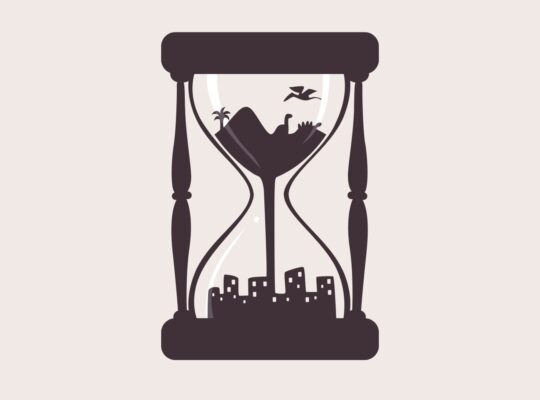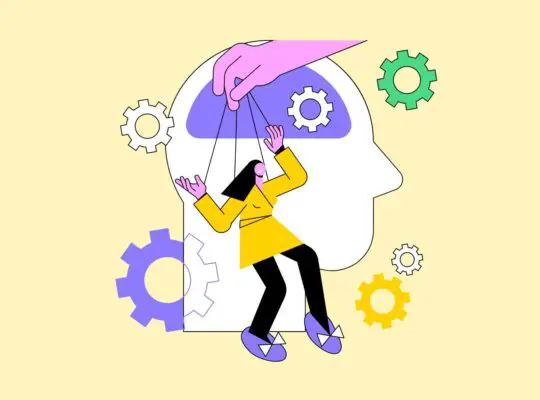In this post: Key skills needed to overcome challenges, The benefits of overcoming challenges, assessing your skill level in overcoming challenges, and 15 ways to challenge yourself and rise above any adversity.
In life, we all set goals for ourselves and have dreams we want to achieve. When you set out to work toward achieving these dreams and making them a reality, you will, unfortunately, often encounter roadblocks along the way.
Whether your dreams relate to relationships, work, your health, or your finances, there are bound to be missteps, obstacles, and points of failure as you work to achieve these. Identifying the cause of the challenge, as well as finding ways to overcome these hurdles, are the true tests of life that teach us so much.
What Is A Challenge
In life, we are often faced with challenges, but what does that mean? Anything that is new and difficult and also requires a lot of effort or determination on your part is a life challenge. Challenges can be related to your overall health and wellness, your personal beliefs and values, external forces, dealing with your own emotional issues, or they can come from how others in your life treat you.
Examples of some challenges you may be facing or will face later in life include injury or illness for yourself or a loved one, unemployment, divorce, losing someone you care about, new opportunities with unknown outcomes, dealing with toxic people, or any other of the myriad ways that life throws us curve balls all the time.
What’s more important than the challenge itself is how you face these obstacles, what you learn from these difficult situations, and how you apply that to later challenges you face in life.
What Skills Are Needed To Overcome Challenges?
When it comes to successfully handling challenges in life, it turns out it takes some specific skills. Many of us are not born with these skills nor do we learn them when we are young, so some of these may be skills you need to learn and cultivate as you age and face more challenges in your life. By being aware, though, of what it takes to overcome a challenge successfully, you can excel in all facets of your life.
1| Perspective
How you approach the problems in your life is your perspective. When you can see all sides of the problem, even from others’ views, you will be able to learn more from the challenge. When you can see all the potential obstacles you could face, and learn to identify possible solutions for each, you are helping yourself in different ways and building your perspective on a problem.
Another aspect of perspective is understanding for yourself just how significant this challenge is in the grand scheme of life. Is this a temporary challenge or one that will have a long-lasting impact? Is this your challenge or someone else’s, too? Is this challenge something you can ignore and move on from or something you must tackle head-on in order to live the life you want? All of these questions are related to your perspective on the problem.
It takes practice and patience to develop perspective, particularly when it comes to challenges in your own life. But, knowing you have much to learn from each test in life can help you cultivate this skill each time you are faced with a new obstacle. Asking questions, of yourself and others, is a great way to learn perspective and to get a handle on all those new situations that come your way in life. Ask as many questions as you need to help you understand the situation and develop strategies for solving your challenge.
2| Creativity
Your ability to be creative when it comes to overcoming challenges in your life is very important. This includes your flexibility and tolerance for dealing with the unknown, your ability to control your own anxiety and fear about a particular situation, and how many solutions you can develop in the hopes of conquering a challenge in life. Do you have a default solution, and that’s always your go-to? Or do you look at all parts of the challenge and select options that best meet the situation?
Your creativity in overcoming life’s obstacles relates to your willingness to try new solutions, too, perhaps ones you have never tried before. You may have to engage in some trial and error, and you might also need to seek help from others.
3| A Positive Outlook
Having the right outlook is possibly one of the most important skills you can cultivate when it comes to overcoming life’s challenges. Believing that your situation will end well and with a positive outcome is critical to accepting you can find and execute a solution. When you have a positive outlook, you are more likely to be willing to take risks to overcome challenges, as you believe it will work out so therefore are willing to try harder.
Overcoming fear and anxiety can be difficult, which is why so many of the skills needed to overcome challenges related to quashing these emotions, and your optimistic outlook plays a key role in that. Under pressure, it can be hard to maintain a positive outlook, but that makes it even more important to develop this skill in all aspects of your life.
4| Ability to Analyze the Problem
Figuring out exactly what the challenge is can be a tricky thing, sometimes. Defining the problem helps you know what you need to do to solve it, as well as what is not likely to work.
Be sure to look at all sides of the challenge, considering implications for solving parts but not all, and what the underlying causes are, as well. Often, we address the immediate challenge but not the root issue, which leaves us solving the same problem again in the future.
Look at the situation from all sides and ask input from others who may not be so personally involved. This can help you see blind spots you perhaps missed before. Understanding the problem fully is the key to being able to identify effective solutions. Think logically and try to take your emotions out of the analysis, as this can cloud your judgment and prevent you from thinking clearly.
5| Honesty and Realism
When you are able to be honest about your yourself and realistic about your abilities, you will be able to find better solutions to your current challenge. While it is okay to have a good self-concept and believe in yourself, this faith should be based on reality. What have you been successful with in the past that would lead you to think you can accomplish this task? What skills do you bring to the table that will help you realistically implement this solution? Be sure your solutions are based on these facts and not just a blind belief that you are ready to accomplish all possible solutions.
Benefits Of Learning To Overcome Challenges
No one really wants to have challenges in life, because they represent struggle and hard work. But, it’s worth remembering that these obstacles we face throughout our journey in life teach us valuable knowledge and skills that we can apply to other aspects of our lives, and they help us better relate to others. All of this is possible, though, only when we learn something from these experiences, and value that learning. When you accept challenges as learning experiences, you can learn some valuable lessons. Here are our four favorites.
1| You Learn To See the Good in Everything
Some people refer to the silver lining, while others see a terrible situation and think, “well, it could be worse.” Both of these represent a stance toward life’s challenges that are only learned by facing and overcoming these difficulties.
Challenges teach us to appreciate the good that comes out of strife, including what we learned from the experience, how it forced us into new and uncomfortable roles that helped us grow, and what we can apply to future problems that will save us undue stress.
Challenges can teach us to find the good in life’s difficulties, but it may be long after the challenge that you are able to fully appreciate what you learned or what good came from it.
2| You Learn What to Avoid in the Future
When you continue to face the same challenge over and over again in life, this is the world’s way of letting you know that you have not learned from your past challenges. When we choose to accept challenges as learning experiences, they can teach us how to avoid problems in the future, how to recognize precursors that can alert you to potential upcoming disaster, and they give us new knowledge and skills that can be applied to prevent future problems.
3| You Build Character and Strength
The lessons life dishes out can help you become stronger, more self-reliant, and more realistic about your own strengths and weaknesses. If you were the cause of the problem, these tests could also teach you humility and empathy, as you must deal with how your actions affected other people. When you can overcome an obstacle in life, you build confidence in your ability to succeed in the future, as well.
4| You Learn More About Yourself
Life’s challenges are often where the best (and worst) parts of our personalities are revealed. While testing your mettle, difficulties tell us what are and are not capable of, giving us a better understanding of our inner selves.
When you are faced with challenges, you find new ways of dealing with toxic people, discovering new skills you did not know you had, and digging deep into reserves you may not even realize were inside you. All of these are life lessons that should not be ignored, and at the end of the crisis, you’ll have a far better understanding of yourself.
Assessing Yourself: Do You Have Difficulty Dealing With Challenges?
It can be helpful, either before you are faced with an actual challenge or in the midst of dealing with life’s obstacles, that you assess your personal strengths, in order to determine which are assets for problem-solving and which are areas where you will need to build strength or ask for help in the future.
Your strengths are noticeable in the things you find easy to do are you learn without effort. These strengths can include knowledge, skills, inherent talents, character traits, and behaviors that you exhibit in your daily life, as well as under pressure.
You have developed these through practice throughout your life, making you proficient in these areas in all aspects of your life. Understanding your strengths can help you develop a problem-solving toolkit, and it can help you identify areas in your life where you need to focus to improve.
It’s worth remembering that no one is born with strengths, but instead, we learn them over time and cultivate them through practice. Strengths come from your interests, which create a willingness to learn and grow in specific aspects of your life.
As we gain experience and have successes in these areas, we continue to practice and gain more proficiency. So, building new strengths is a matter of effort, attention, and will.
Assessing Your Strengths
To assess your own strengths, you have many options. There are hundreds of online quizzes and self-assessments available, some with actual research into human psychology to back up their claims.
But, if you want to start simple, sit down with a notebook and pencil and start by listing your all the areas in which you think you have strengths.
Focus on your skills, behaviors, knowledge, and talents in all aspects of your life. Here are some questions to guide your writing.
- What do I believe to be my strongest character attributes?
- What qualities do I use every day?
- What strengths have helped me most in my life up to this point?
- What would my partner or best friend say are my greatest strengths?
- What are the things I have the easiest time learning or doing?
- What do I know that many others do not?
- When I was young, what activities was I drawn toward?
- In what activities do I become completely immersed?
- In what aspects of my job do I perform better than most others?
- What skills have I learned easily and mastered quickly in my life?
- In what areas of my life do I have the potential to be outstanding?
Look carefully for nuanced differences that could still be important when trying to overcome obstacles.
For instance, are you trustworthy but maybe not as loyal?
Are you determined as well as disciplined?
List as many as you can think of, and while you don’t have to always write this down, it is good to think of examples in your life when you felt you exhibited this trait well and without thought. That means it is a strength you use innately rather than one you need to practice more.
While compiling your list, if you find you get stuck, ask others in your life for input. Talk with your friends, colleagues, and life partner to find out what they see as your strengths.
Let them know up front why you are asking for their input and listen carefully to what they have to say. They may be able to help you identify the skills or knowledge you didn’t even know you had.
Once you have your list, it’s time to determine your next steps.
Which of your strengths need improving, particularly as it relates to overcoming challenges in your life?
Which of these strengths are essential for helping you overcome challenges you are currently facing?
The purpose of this type of self-assessment is to help you identify the gifts within you that can be helpful in times of challenge, as well as help you focus in on those areas where you need to build strength to help you through whatever is going on in your life.
Building on your strengths can help you achieve your goals and put you on the path you want in life, as well.
Tips To Overcome Challenges: Practice Makes Perfect
It is only through the practice and cultivation of your strengths and talents that you will be able to overcome challenges and succeed in the face of obstacles. Below we list some helpful hints to remember when practicing the habits of mind and skills you will need to become better at handling the challenges we all face in life.
Tip #1. Take it one step at a time. No problem is solved all at once and trying to get instant results is setting yourself up for disappointment. Break your challenge down into smaller, bite-sized chunks, and tackle each part individually. You may start to notice patterns and techniques that will be helpful to you when you tackle smaller parts of the whole, and you can celebrate your smaller successes along the way.
Tip #2. Look for similar problems you have already solved. It can be helpful to look back at other challenges you have faced and determine how your current situation is similar or involves similar skills needed for overcoming your latest obstacles.
Tip #3. Be prepared for mistakes. When you are solving a new or unique problem, you are very likely to make mistakes along the way. This is to be expected, and more important than the mistake itself is what you choose to learn from that mistake. Mistakes are not a bad thing, so don’t get discouraged or frustrated. Fumbles are an opportunity to learn and grow, then keep moving forward. That’s all.
Tip #4. Watch your emotions. When you are emotional, it affects your judgment and decision-making. It is best to deal with most problems logically rather than emotionally, so adopting a stance toward controlling your emotions is very helpful. Give yourself time to calm down when emotions run high before making major decisions.
Tip #5. Keep track of your progress and what you are thinking. A journal comes in very handy in this instance, as it allows you to document your successes, what questions are plaguing your mind, and how you are dealing with the emotions you are likely to be experiencing. Keep track of progress toward smaller goals and use your diary to help you look for patterns or possible new problems, so you can address them quickly.
Tip #6. If you aren’t successful, try again. It may take many attempts to get it right and overcome a particular challenge. You may have to try lots of solutions and even fail several times before you are able to finally reach your goal. Keep your end result in mind, focus on why this is important to you, and start over. Use the lessons of your past stumbles to inform your future decisions.
15 Ways To Challenge Yourself
If you want to challenge yourself and build up the skills and knowledge you need to overcome future challenges and succeed in life, you can create challenges for yourself that help you build these skills.
The following are 15 challenges, which will help you practice those needed skills and develop the necessary knowledge to overcome challenges in the future.
1. Build a good team. No one achieves success in life on their own. Build a network of friends, family, co-workers, mentors, and others who can help you in your life. Seek out people who can help you build the skills you lack, and learn from all those in your life, as they have much to teach you.
2. Seek out opportunities to struggle. Do something that will push your limits of current capacity, something that will help you develop new coping skills as well as teach you about yourself. This will vary by person, as what we each find challenging is personal.
3. Know your emotions. When you can articulate what you are feeling, even going so far as to name or label your feelings, you are more able to change unhelpful patterns. When you label things, it separates you from the emotion, and you are able to more critically analyze why you feel the way you do when you can articulate exactly what is happening.
4. Keep a journal. When you are facing challenges, write down what you are feeling and what you are thinking about how to solve your problem. Not only does writing free up space in your mind by releasing these thoughts to paper, but it engages your conscious brain in problem-solving while putting your emotional brain on pause.
5. Get moving. Regular exercise has so many benefits for your physical and mental health, that this one should go without saying. But, many people also forget that struggle takes strength and stamina, too, both of which you develop when you work out regularly. Regular exercise helps you develop the discipline you need to overcome challenges and be successful in life, as well.
6. Make a list of your accomplishments. Write down every success you have had in your life, even the small ones. Think of at least 50. This can help you build confidence in your wins as well as help you learn to celebrate the small and not-so-small victories you achieve all the time.
7. Develop one new habit each month. In the face of a challenge, it can be difficult to sustain the kind of practice needed to build new strengths. Start now by selecting one new habit you’d like to develop, then focus on that for 30 days. Practicing something new for at least a month can help make that new way of thinking or behaving become automatic. This can also help you develop confidence in your ability to meet new challenges.8. Get outside. Spending time in nature improves your brain function and your mood. Spending time outdoors is a great way to gain perspective and spend time thinking about whatever challenge you are currently facing, too.
9. Make a list of your goals. Write down all the things you still want to accomplish in your life, which gives you something to work toward and focus on. Goals help you sustain during times of struggle, and when you write them down, you are far more likely to actually attain them.
10. Change your language. Work on using positive, optimistic words instead of those that make you feel negative. Words are powerful, and when you express your wishes and feelings using only positive language, you are more likely to feel that you can overcome challenges.
11. Ask the right questions. Instead of focusing on “Why can’t I do this,” or “What is wrong with me,” you need to rethink how you are asking the questions that shape how you overcome challenges. This shift in language can be powerful in helping you overcome many of life’s challenges.
12. Learn to meditate. Meditation is a practice known to alter the brain’s function and increase your ability to remain focused and aware. Sitting in silence and focusing can help you ignore distractions, as well, which is important when considering how to solve a problem.
13. Stand up straight. When you change your body language, you actually change how your brain is working. Standing up straight and exuding a confident posture can help you feel confident, giving you the power to persevere in the faces of obstacles.
14. Put yourself in someone else’s shoes. The next time life hands you a challenge you are unsure how to address, ask yourself what someone you admire would do. When you have people in your life who clearly possess strengths that you may not have, consider how they would handle a situation, then do that. Do what others would do to achieve goals that others have achieved.
15. Do something that scares you. Set a goal for yourself that makes you a little nervous, something you have never considered doing. Even if you are unable to achieve that goal fully, working toward it and experiencing highs and lows along the path will teach you invaluable lessons you can use when faced with other challenges.
Final Thoughts
The best things in life will come with their fair share of challenges and obstacles. Avoiding these challenges is not an option, so it’s best to learn how to effectively deal with them.
Learning to be proactive about challenges, as well as identifying your own inner strengths that allow you to overcome these obstacles, will help you achieve anything to which you set your mind.
When you learn to address challenges logically, to control your emotions, and to rely on yourself and others who have strengths necessary for beating the odds, you can achieve your dreams in all aspects of your life.







